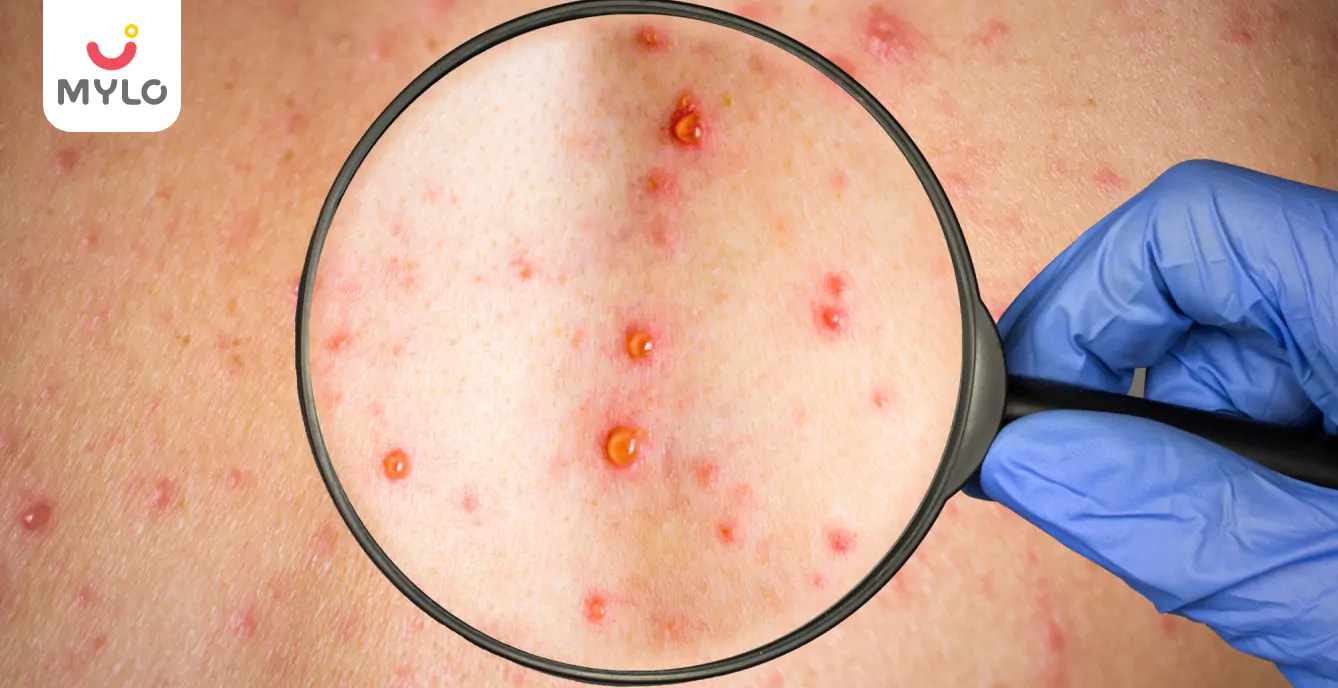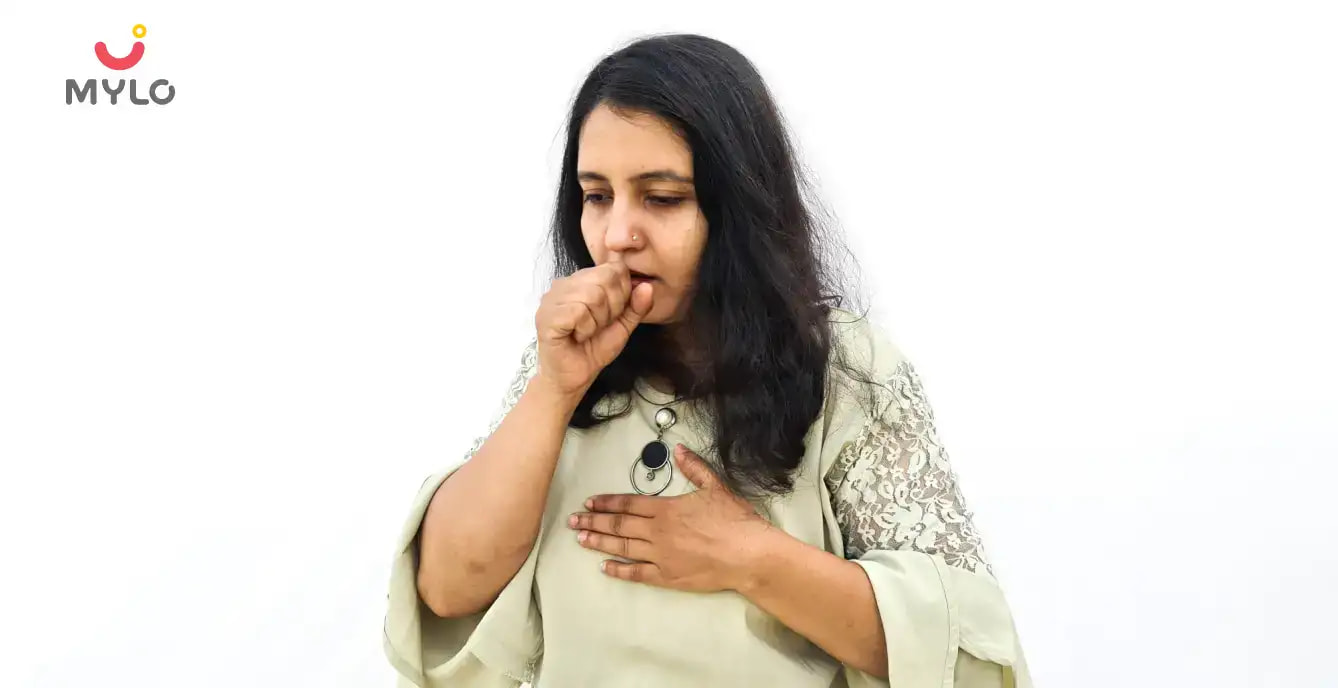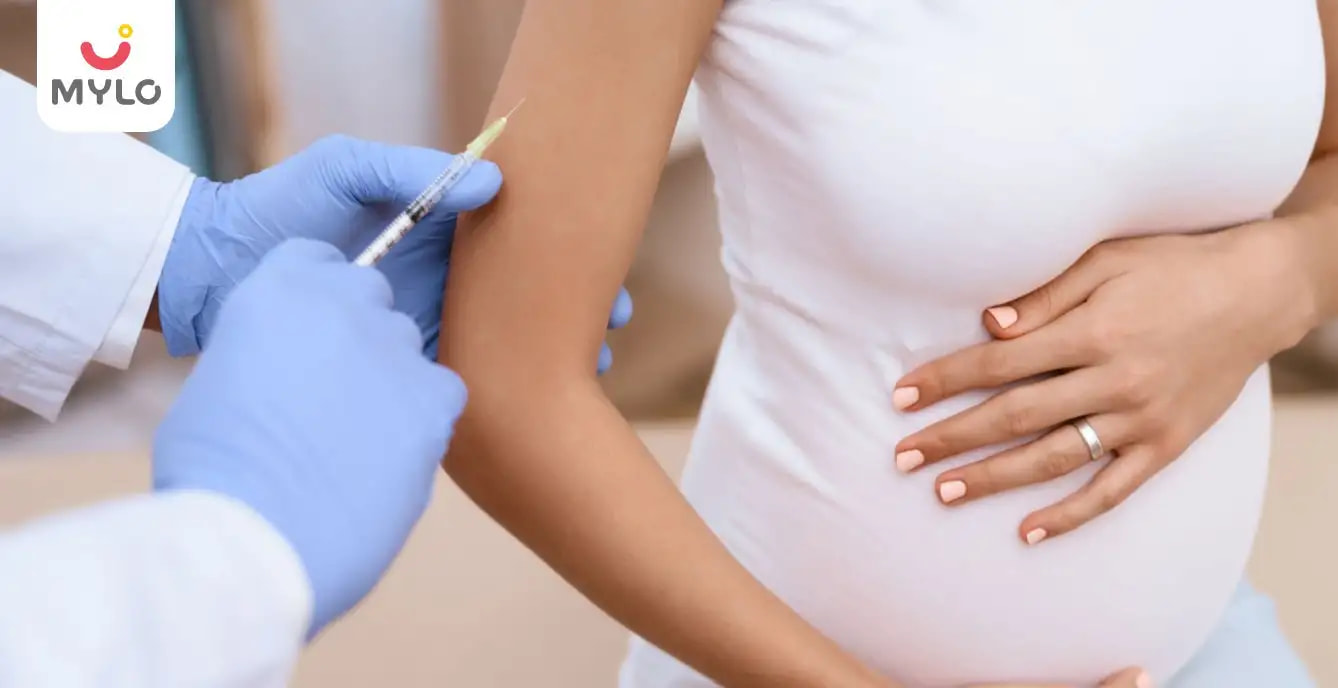Home

Illnesses & Infections

What to do if my child has measles?
In this Article
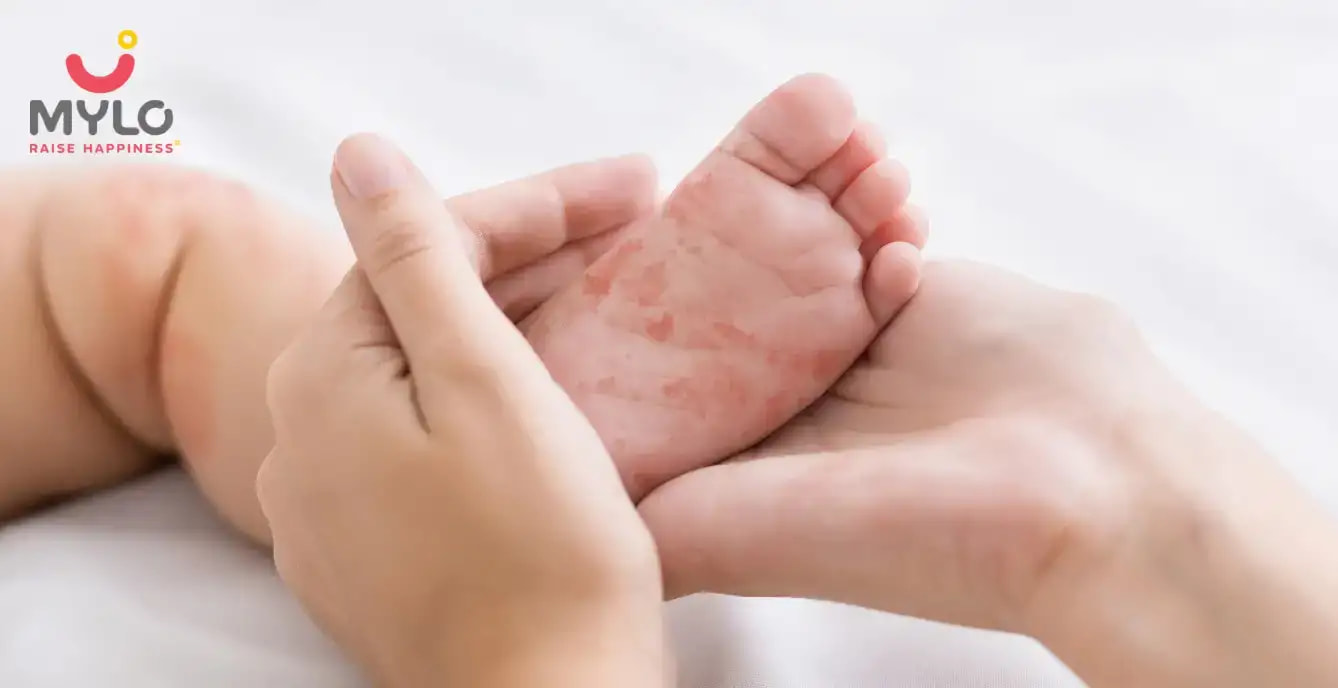
Illnesses & Infections
What to do if my child has measles?
Updated on 29 January 2022
Measles is a highly contagious and potentially deadly viral infection.
It starts like a bad cold with a characteristic measles rash appearing after a few days.
People who haven’t been vaccinated against measles are at the greatest risk of complications.
You can protect your child from measles by ensuring he gets the MMR vaccine.
What causes measles?
The highly infectious rubeola virus causes measles. When someone who has the virus sneezes or coughs, tiny droplets containing the virus spray into the air.
The droplets stay active for a few hours in the air, or on a surface. If your baby comes into contact with these droplets, he can become infected.
Being in the same room for at least 15 minutes with someone who has measles, or having face-to-face contact with them, is enough to expose your baby to the virus.
If your baby hasn’t been immunised, and hasn’t had measles before, he's likely to catch it if he is exposed to it.
If your child has been vaccinated against the virus, there is a very small chance that he can still catch the disease, but he is much better protected than without the vaccine.
If your child has had measles before, he's probably already immune, and is very unlikely to get it again.
What are the symptoms of measles?
Although the characteristic measles rash is the most obvious sign, you'll probably notice that your child seems a bit under the weather before it appears.
It can take about 10 days for measles symptoms to show. The time between someone being infected with measles and then showing symptoms is called the incubation period.
Early symptoms of measles are similar to a cold or flu, including:
- fever
- a runny nose
- cough
- sore, red, swollen eyes
A more obvious early symptom is small, grey-white spots inside your baby's mouth. The spots may look like grains of sand or salt.
Between two days and four days after early symptoms appear, a red-brown blotchy rash develops. The spots may be flat or slightly bumpy or raised. Sometimes they join together to make larger patches.
The rash will first show on your baby's head or upper neck, before spreading to the rest of his body. It can sometimes be a bit itchy, but not always.
As the rash appears, your baby's fever may rise to as high as 104 degrees F. Your little one will probably feel most unwell during the first couple of days after the rash appears, then start to feel a bit better.
The rash will last for about five days. It fades in the order it appeared on the child's body. As it fades, it will turn a brownish colour and leave your baby’s skin dry and flaky. Along with the rash, your baby is likely to:
- be tired and irritable
- lose his appetite and go off his feeds
- have aches and pains in his muscles
- have a worsening cough, which may keep him awake at night
What should I do if I suspect my baby has measles?
Call your doctor right away if:
- you suspect your baby has measles
- your baby has been exposed to someone with measles
- you live in an area where there's a measles outbreak
Also, talk with your doctor if your child has been exposed to the virus but has only had one of the two MMR shots.
You should check with your doctor even if your baby has been fully immunised (received two doses of the MMR vaccine) and has just been exposed to the measles virus. It's extremely unlikely that he'll come down with the measles, but you should still let his doctor know.
Because measles is very contagious, it's better to phone your doctor first, rather than going straight to the clinic. Your doctor might need to put some precautions in place, to reduce the risk of other patients catching measles from your child while he's there.
When you take your child to the doctor, she'll take a good look at your child's rash and ask about his symptoms. This will help her to work out if it's measles or something else.
How is a measles infection treated?
The type of treatment your doctor recommends will depend on your baby's age, and whether your child has received one dose of the MMR vaccine or both.
Be aware that once your doctor has confirmed that your baby has measles, there's not much you can do to treat it. Measles is a virus, so it can't be treated with antibiotics. The illness just needs to run its course.
Your baby should get better in a week or so. In the meantime, your doctor will suggest ways to treat the symptoms and ease your baby's distress.
How should I care for my baby if he has measles?
There's not a lot you can do to treat measles other than try to make your child more comfortable. These tips might help your little one feel better while he recovers:
- Make sure your baby gets plenty of rest.
- Offer him plenty of fluids to bring down his fever and to prevent dehydration. Offer him extra feeds if he's exclusively breastfed or extra cooled, boiled water if he's on formula milk or solid foods.
- You can give your baby infant paracetamol to ease his fever and aches and pains. Your baby's doctor will prescribe the right dose based on your child's weight.
- To ease your baby’s cough, place a bowl of steaming water in his room to create humidity. You might find this helpful, especially when the weather is dry. If you prefer, you could also use a humidifier or vapouriser to keep the air moist.
- Don’t give any cough medicine. It won't help his cough, and may even cause unwanted side-effects, such as an allergic reaction. If he is one year old or older, you could give him warm water with some honey and lemon.
- If your baby is having trouble drinking, or eating, because of a blocked nose, you could try nasal saline drops recommended by your doctor. These drops can help to thin mucus. They're only worth trying if your baby tolerates them well, though. Drops are probably not worth it if they just upset your baby.
- Keep him away from his childcare setting and other children until at least four days after he develops the rash.
Can measles cause any complications?
Most babies and children recover from measles without problems. However, some children may develop complications, and babies under one year are particularly vulnerable.
Let your baby's doctor know if he develops any of the common complications of measles. These include:
- diarrhoea
- vomiting
- an ear infection
- an eye infection
- a swollen throat (laryngitis)
- infections of the chest and airways (respiratory system), such as bronchitis, croup, or pneumonia
Common complications can turn occasionally serious, so keep a close eye on your baby. If he seems to find breathing painful, is struggling to take breaths, or starts to cough up blood, call an ambulance, or take him to the emergency department of the nearest hospital.
It's also common for babies and children with measles to have a febrile convulsion or seizure. If this happens to your baby, and he hasn't had a convulsion before, call an ambulance, or take him to the closest hospital.
Rarely, measles can also infect the nervous system, in particular:
- the nerves and muscles in the eyes
- the brain's membrane and spinal cord, leading to meningitis
- the brain itself, leading to encephalitis (inflammation of the brain)
Infections of the nervous system are medical emergencies. If your baby has a rash that doesn't fade, or he seems floppy and unlike himself, call an ambulance or go to the hospital right away.
How can I protect my child from measles?
The best way to protect your child against measles is to make sure he has the combined measles, mumps and rubella (MMR) vaccine. This is given as part of your child's routine immunisations. Your baby will get the MMR vaccine at:
- nine months (dose 1)
- 15 months (dose 2)
- 4-5 years (booster dose)
The MMR vaccine is very effective after two doses.
While no vaccine guarantees 100 per cent immunity to everyone who's immunised, it offers your child the best chance of protection from infectious disease.
If anyone catches an illness despite being vaccinated, chances are it's less likely to be serious.
If your child has missed any scheduled immunisations, check with a doctor about an updated schedule.
Is the measles vaccine a live vaccine?
The MMR vaccine is a live-attenuated vaccine, which means it's a live virus, but it's weakened so that it won't cause the disease in your child.
The vaccine is the best way to prevent this illness. It prompts the body to create antibodies which will protect your baby against a real measles infection.
Some children develop a mild rash and fever after the vaccine, but it's uncommon and only lasts a few days.
If you have any worries about your baby's health, don't hesitate to speak to your child's doctor.



Written by
Priyanka Verma
Priyanka is an experienced editor & content writer with great attention to detail. Mother to an 11-year-old, she's a ski
Read MoreGet baby's diet chart, and growth tips

Related Articles
Related Questions
Influenza and boostrix injection kisiko laga hai kya 8 month pregnancy me and q lagta hai ye plz reply me

Hai.... My last period was in feb 24. I tested in 40 th day morning 3:30 .. That is faint line .. I conculed mylo thz app also.... And I asked tha dr wait for 3 to 5 days ... Im also waiting ... Then I test today 4:15 test is sooooo faint ... And I feel in ma body no pregnancy symptoms. What can I do .

Baby kicks KB Marta hai Plz tell mi

PCOD kya hota hai

How to detect pcos

RECENTLY PUBLISHED ARTICLES
our most recent articles
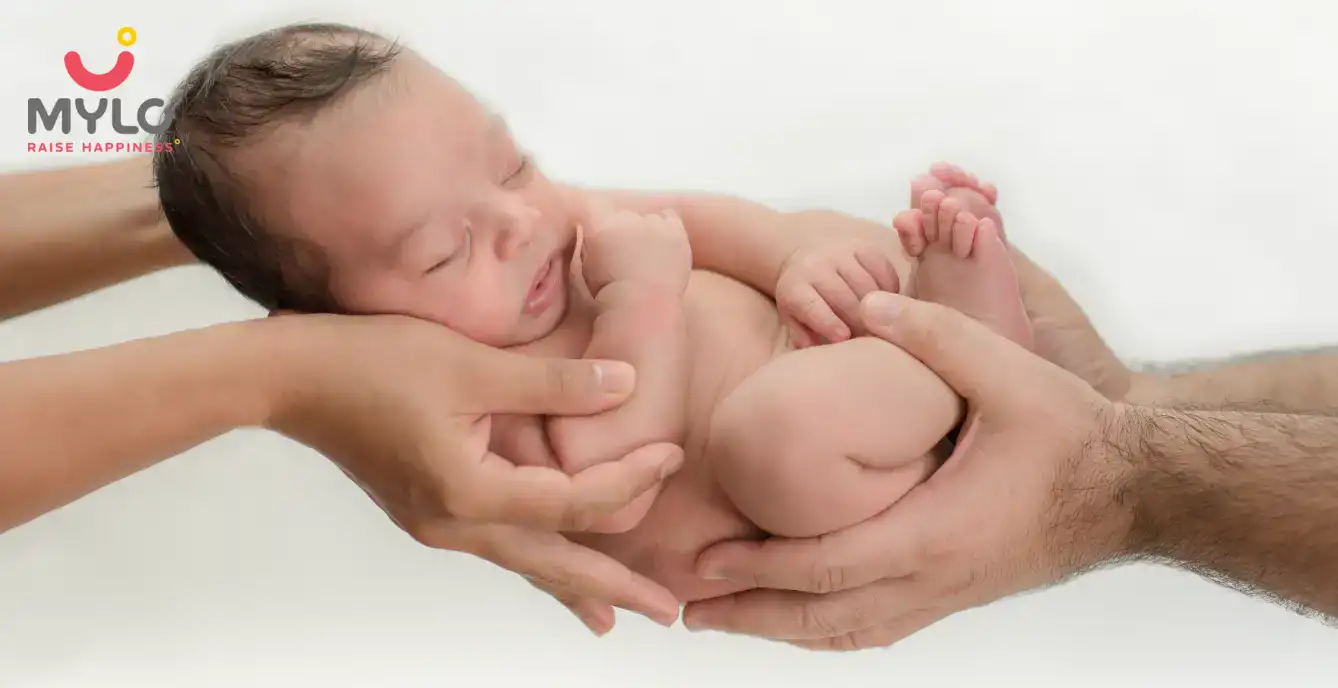
General Father
How To Be A Supportive Husband To Your Partner During Childbirth

General Father
Top travel tips you must consider for experiencing an unforgettable Babymoon
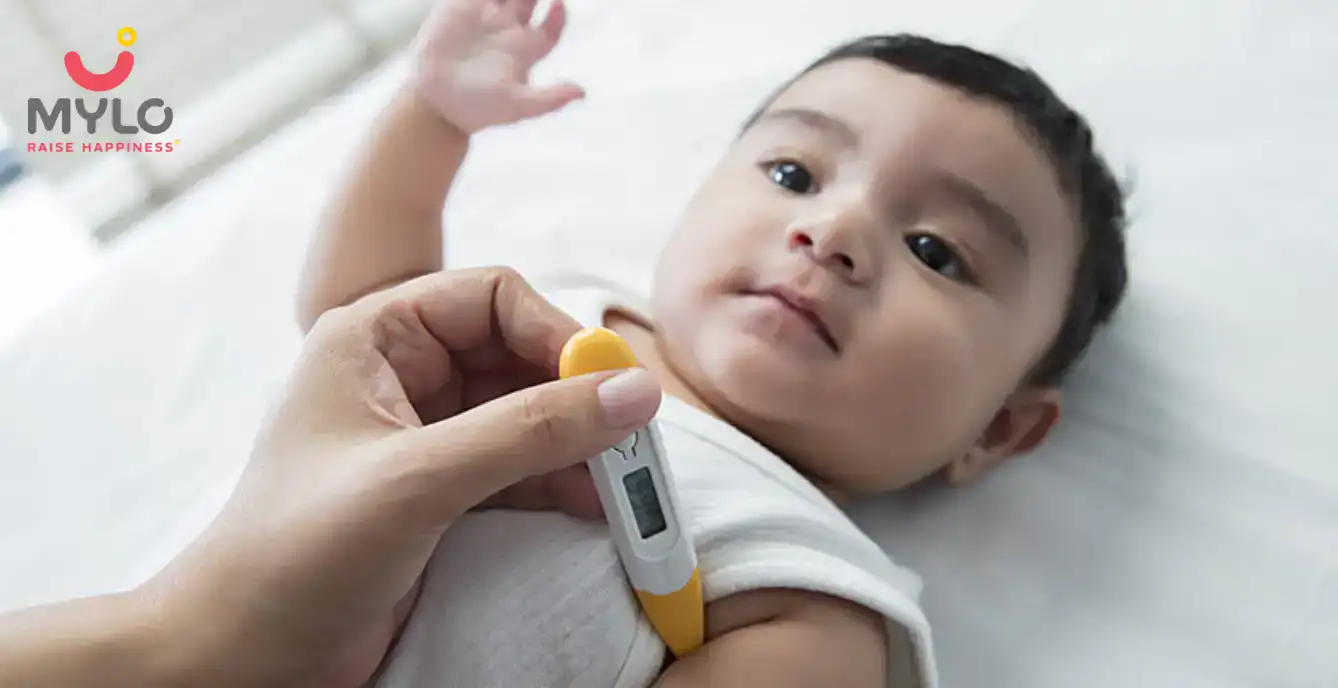
Immune System
Difference between viral infection and bacterial infection and what to do if your kid catches one

Fasting
Pregnant ladies and new moms: what to eat and what not to eat while fasting in Navratras
Toys & Gifts
Choosing the right toys for the right age
Developmental Disorders
Caring for a baby with Down syndrome
- Wondering how long should you be tracking your baby's feed? We will help you
- Co-Parenting? Here’s What You Should Be Doing
- Age-Appropriate Toys for Your Little One
- How To Prepare To GO Back To Work After Paternity Leave
- my story....You must read those who are sufferings problems from in-laws families and husband
- Ensure that your home is safe for your baby
- Opting for a water birth? Here's what you need to know
- Tips for New Dads to Make Friends with Other Fathers
- Are You a Millennial Parent? Find Out
- How to Choose a Gynaecologist for Your Pregnant Wife?
- Wheezing in toddlers: How to treat?
- How can steam inhalation help my baby's blocked nose?
- Treatment for Hives in toddlers
- How to cure ringworm in toddlers


AWARDS AND RECOGNITION

Mylo wins Forbes D2C Disruptor award

Mylo wins The Economic Times Promising Brands 2022
AS SEEN IN
















- Mylo Care: Effective and science-backed personal care and wellness solutions for a joyful you.
- Mylo Baby: Science-backed, gentle and effective personal care & hygiene range for your little one.
- Mylo Community: Trusted and empathetic community of 10mn+ parents and experts.
Product Categories
baby carrier | baby soap | baby wipes | stretch marks cream | baby cream | baby shampoo | baby massage oil | baby hair oil | stretch marks oil | baby body wash | baby powder | baby lotion | diaper rash cream | newborn diapers | teether | baby kajal | baby diapers | cloth diapers |



